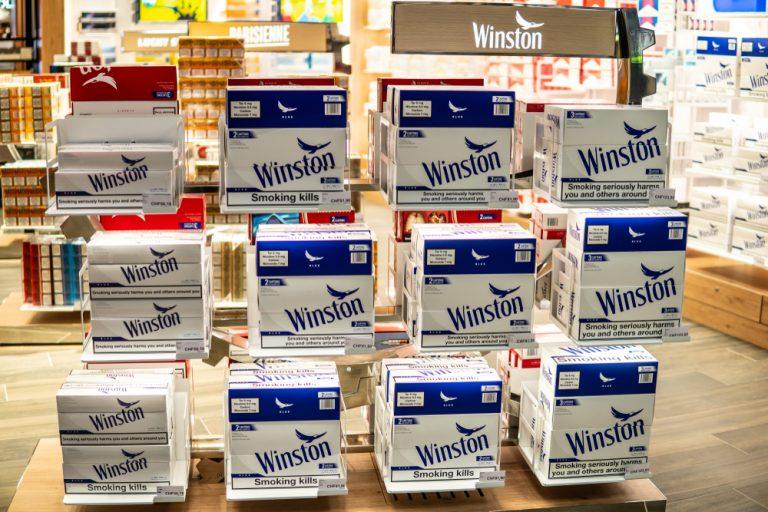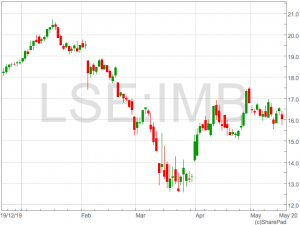
Tobacco and vaping firm, Imperial brands (LON:IMB), has slashed its dividend to help conserve cash as operating profit slumped 20% in the first half 2020.
Imperial Brands shares fell over 6% on Tuesday morning as the company rescued the dividend from 62.56p to 41.70p.
Imperial Brands has long been considered a strong income play and the dividend cut will be a blow to investors.
The dividend cut comes amid a drop in profit which the company attributed to a fall in sales in their Next Generation Products (NGP) such a vapes and impairment charges amounting to £95m.
 However, overall revenue was down just 0.9% as their traditional tobacco products gained market share.
However, overall revenue was down just 0.9% as their traditional tobacco products gained market share.
“While we delivered against our revised expectations, we are disappointed with these results, and we remain fully focused on all opportunities to strengthen performance,” Dominic Brisby and Joerg Biebernick, Joint Interim Chief Executives of Imperial Brands in a statement.
They continued to to explained the current state of demand for their product mix:
“Our enhanced focus on tobacco has driven stronger in-market execution and an improved share performance, with gains in most of our priority markets. We have reduced our NGP spend following the poor returns on investment last year and this, together with recent weaknesses in the vapour category, has resulted in lower NGP revenue.”
“Overall, COVID-19 has so far had only a small impact on trading but we expect this to be more pronounced in the second half due to continued pressures on our duty free and travel retail business, changes in consumption patterns including downtrading and a reversal of some first half inventory build.”
“Agreeing the sale of our premium cigar business for €1.2 billion in the current climate was a major achievement and will further simplify the business and reduce debt. Deleveraging remains a key priority, such that the Board has decided to rebase the dividend by one-third to accelerate debt repayment, while retaining a progressive dividend policy, growing annually from the rebased level. This will strengthen the balance sheet and support a more flexible approach to capital allocation in the future.”
